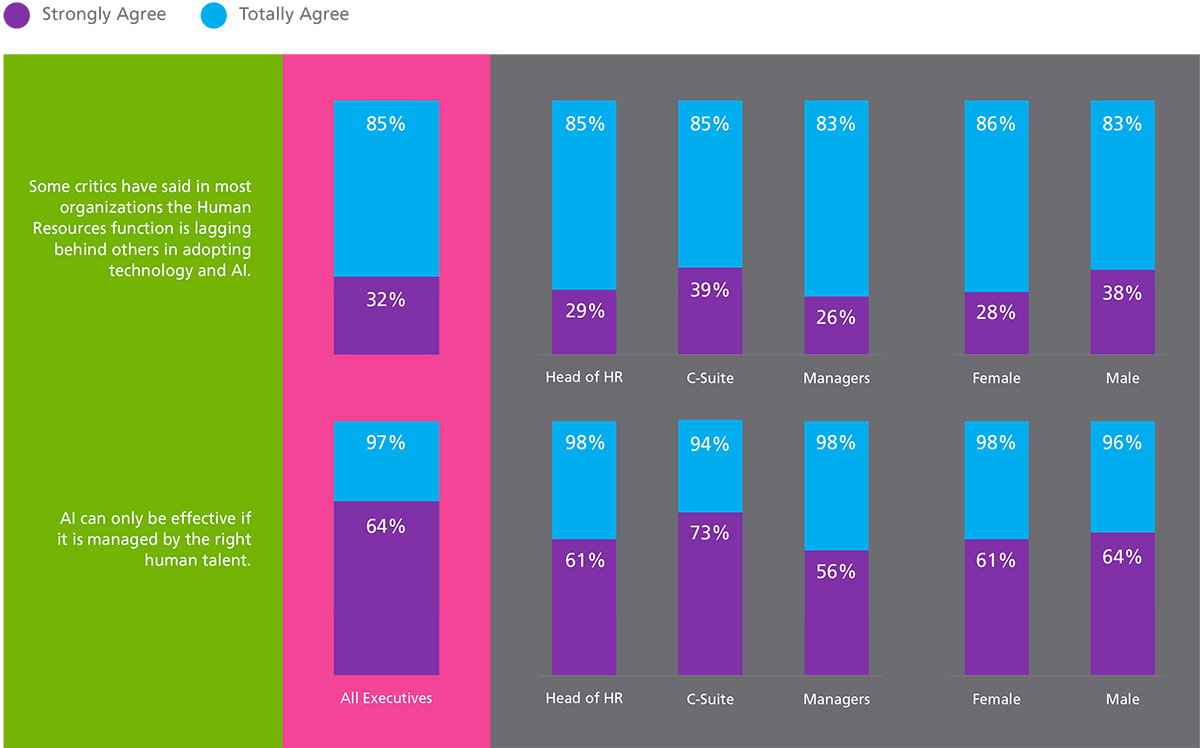How technology is changing the role of CHROs and senior HR executives.
Challenges and Opportunities
Human Resources decision makers see distinct potential for HR in the age of AI. The most commonly selected top opportunity (70%) in running a Human Resources division are performance assessments aided by AI and technology, which offer valuable insights into employee potential. 60% say that relying on analytical processing and data, as opposed to individual observations, is a key opportunity. This is closely followed by effectively streamlining candidate screening and automating onboarding procedures for new employees (each at 57%) and is rounded out by using big data to predict trends in the organization and planning accordingly (55%).
“Managing people is too important to be left to people. New technology, combined with the increased availability of data, is changing everything. Companies are now using analytics to hire, manage and retain talent. And why not? These tools can provide insight into what has always been a top priority for achieving strategic goals: talent.”
— Steve Nilsen, Partner, Boyden United States
But the age of AI is not without challenges. 61% of HR executives see hiring individuals with the right skill set as a top challenge, while 60% are concerned about keeping up with advancements in technology.
Another key concern regarding the rise of AI has to do with bringing the sector up to speed. 85% agree that the HR function lags behind, while just under one-third (32%) strongly agree. As Dharma Chandran, Partner, Boyden Australia points out, “Despite the buzz surrounding the application of AI and new technology to the selection process and performance management, many HR executives still favor the status quo over potentially game-changing disruption.”
“No matter what the data says, if it cannot be messaged in a way that is easily understandable it will remain just that – data and not insights. That is why verbal and written communication skills are so important.”
Shannon Di Pietro
Vice President, Human Resources, Thermo Fisher Scientific
Executives, as whole, generally agree on the importance of human management of AI. 97% of respondents agree that AI can only be effectively managed by the right human talent, while just under two-thirds (62%) strongly agree.
As Marco Ryan, Executive VP and Chief Digital Officer, Wärtsilä describes, “AI is changing dynamics in the workplace, both in terms of process automation and engineering and in terms of how data is used and value can be created. However, AI has many different use cases and so people still need to be in the loop – there is increasing demand for human expert interpretation.”
To what extent do you agree with the following statements?





